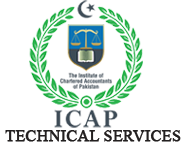IESBA Clarifies Definition of Those Charged With Governance
The International Ethics Standards Board for Accountants (IESBA) has released final changes to the definition of “those charged with governance” in its Code of Ethics for Professional Accountants (the Code). The changes are intended to more closely align the definition of “those charged with governance” in the Code with that in the International Auditing and Assurance Standards Board (IAASB)’s International Standard on Auditing (ISA) 260, Communication with Those Charged with Governance, thereby eliminating any potential confusion.
The changes, effective on July 1, 2014, clarify that a subgroup of those charged with governance of an entity, such as an audit committee, may assist the governing body in meeting its responsibilities. In those cases, if a professional accountant or firm communicates with such a subgroup, the Code requires the professional accountant or firm to determine whether communication with all of those charged with governance is also necessary so that they are adequately informed.
IASB Summary of feedback on lessee accounting exposure draft
The IASB staff has published a summary of feedback on the lessee accounting proposals. During the outreach events held between May and September 2013 the IASB and the FASB asked investors and analysts three main questions about the proposals in the ED/2013/6 Leases which was published in May 2013:
- Do leases create assets and liabilities for a lessee and, if so, should they be recognised on a lessee’s balance sheet?
- What are your views on the proposed changes to a lessee’s income statement?
- What are your views on the proposed note disclosure package?
According to the summary the credit analysts and analysts consulted within the credit rating agencies generally supported the changes proposed to a lessee’s balance sheet while the views of equity analysts were more mixed. Regarding the income statement proposals investors and analysts consulted agreed that there are economic differences between most leases of real estate and leases of equipment and vehicles and understand the rationale behind the dual approach proposed. There was general support for Disclosure proposals.
A Guide to the IFRS Education Initiative
The IFRS Foundation has published ‘A Guide to the IFRS Education Initiative’ highlighting the progress made in each of the IFRS Foundation Education Initiative’s main projects. These projects are aimed at reinforcing the IFRS Foundation’s goal of promoting the adoption and consistent application of IFRS. The main projects of the Education Initiative are:
- Framework-based teaching – supporting IFRS teachers,
- IFRS adoption and implementation support,
- IFRS for SMEs adoption and implementation support, and
- Investor-focused IFRS education.
IASB outreach events for Conceptual Framework
The International Accounting Standards Board (IASB) plans to hold a series of round-table meetings and other forms of outreach on its Discussion Paper on the Conceptual Framework which was published in July 2013 and is open for comments until January 14, 2014. The Discussion Paper is designed to obtain initial views and comments on important issues that the IASB will consider as it develops an Exposure Draft of a revised Conceptual Framework which IASB plans to publish in 2014. The issues include:
- definitions of assets and liabilities;
- recognition and derecognition;
- the distinction between equity and liabilities;
- measurement;
- presentation and disclosure; and
- other comprehensive income.
Training module for the IFRS for SMEs on ‘Share-based Payment’
The IFRS Foundation Education Initiative has published training module for Section 26 of the IFRS for SMEs ‘Share-based Payment’. This section of the IFRS for SMEs provides guidance on share-based payment transactions and the related non-mandatory guidance. IFRS Foundation is developing 35 stand-alone training modules for each section of the IFRS for SMEs, which are available at IASB website.
SECP issues Draft Bancassurance Regulations
The Securities and Exchange Commission of Pakistan (SECP) has issued the Draft Bancassurance Regulations, 2013, to elicit the public opinion. They shall replace the Bancassurance Guidelines that were issued in June 2010. The new regulations aim to bring more alignment in the long-term interests of the three primary stakeholders of life insurance business, i.e. policyholders, insurer, and agent (bank in this case) through introduction of various regulatory measures such as rationalization of bank’s remuneration structure, restriction on recycling of life insurance policies, introduction of commission claw-back provision, minimum surrender values, minimum financial underwriting parameters and mandatory after sale call-back requirements.
